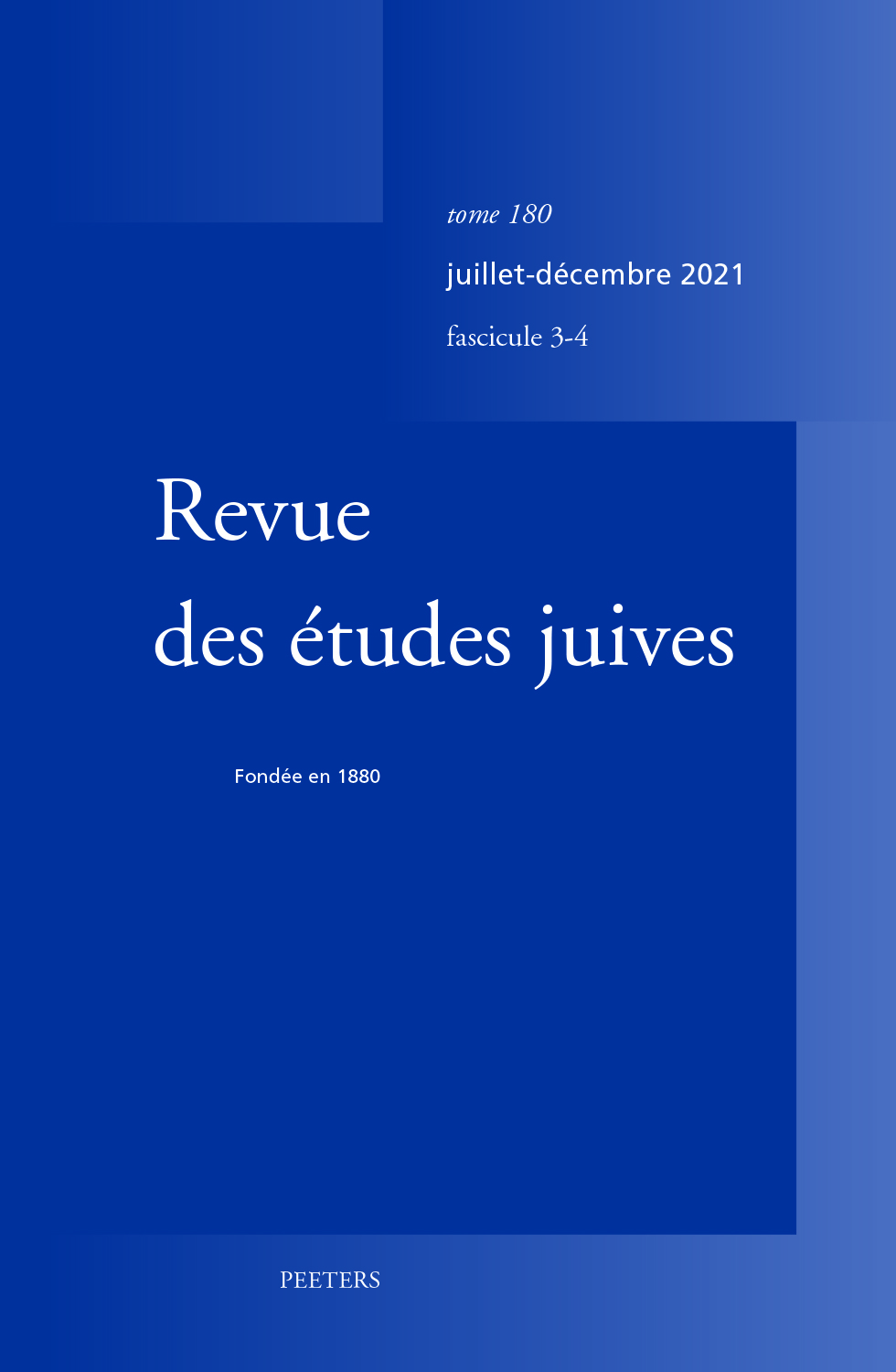 previous article in this issue previous article in this issue | next article in this issue  |

|
Document Details : Title: La bibliothèque du kabbaliste italien Mordekhay Dato Subtitle: Nouvelles preuves Author(s): ATTIA, Élodie Journal: Revue des Études Juives Volume: 168 Issue: 3-4 Date: juillet-décembre 2009 Pages: 483-506 DOI: 10.2143/REJ.168.3.2044664 Abstract : Mordekhay ben Juda Dato est un membre relativement bien connu du cercle des kabbalistes italiens du XVIe siècle. Toutefois, sa formation avant 1555, ses lectures et sa bibliothèque personnelle sont des aspects qui demeurent encore particulièrement obscurs. Ces lacunes peuvent être en partie comblées par l'examen du corpus de livres qu'il a copiés, annotés ou possédés. Après quelques éléments biographiques, nous dressons une liste plus complète des livres de Dato par l'identification paléographique de sa main. Sont présentés des manuscrits ou imprimés copiés par Dato, ceux portant une marque de possession de sa main, et ceux qui sont — ou semblent être — annotés de sa main. Cette analyse apporte ainsi de nouvelles perspectives d'étude. Les livres mentionnés portent les traces de ses lectures et ses commentaires personnels. Ils matérialisent également des liens inattendus entre Dato et un cercle d'érudits parmi lesquels se trouvent Raphaël Salomon de Prato, Yehiel de Pise, et Moïse Basola. Mordekhay ben Juda Dato is a well-known kabbalist in northern Italy during the second half of the 16th century. However, his education before 1555, his readings and his private library remain undefined until these days. The examination of the books he copied, possessed or annotated can provide a better understanding of Dato's library. After few biographic elements, we present a new list of the books of Dato, based on the palaeographical identification of his handwriting. We describe the manuscripts copied by Dato, the books — even printed — which were possessed by him, and those which were or seem to be annotated by him. This study sheds new light to Dato's thought. These books are evidences of his readings and his personnal commentaries and interests. Some unexpected links appear between him and a scholar milieu including Raphael Salomon da Prato, Yehiel da Pisa and Moses Basola. |
|
